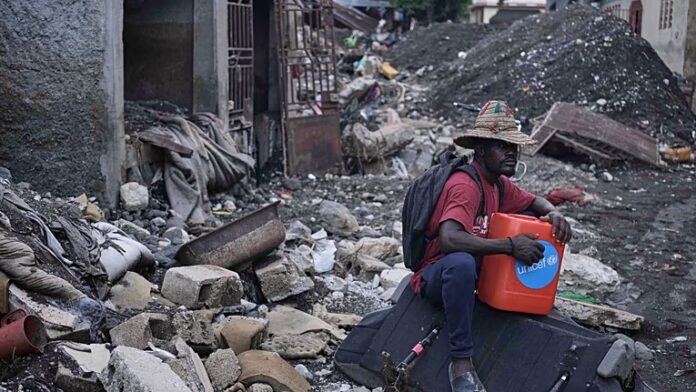More than a week after Hurricane Melissa tore through Haiti, the coastal town of Petit-Goâve remains in a state of devastation. The storm, which struck on the night of October 29, unleashed deadly floods and landslides that buried homes and claimed lives—half of the 20 reported deaths were children.
The La Dique River, once a modest waterway, overflowed in the middle of the night, turning streets into torrents of mud and debris. Families were trapped in their homes, and many had no chance to escape. Today, the river is nearly dry, but the damage it left behind is etched into every corner of the town.
James Creve-Coeur, a resident, recalls the moment he leapt through a window to escape the landslide. “Everything we had is gone — our business, our bank accounts, our animals, our clothes, our beds,” he says, standing amid the wreckage of his home.
More than 160 homes were damaged, and 80 were completely destroyed. The streets of Petit-Goâve are now muddy pathways lined with broken structures and scattered belongings. Yet amid the destruction, a spirit of solidarity has emerged.
With aid organizations struggling to reach the town—blocked by gang-controlled roads and checkpoints—residents have turned to each other. Boat trips from Port-au-Prince now take over seven hours, making relief efforts slow and precarious.
In the absence of formal support, neighbors are stepping up. Families are sharing food, shelter, and comfort. Some residents have opened their small apartments to host multiple displaced families, creating makeshift sanctuaries in the midst of chaos.
Petit-Goâve’s recovery will be long and arduous. But the resilience of its people, their willingness to support one another, and their determination to rebuild offer a glimmer of hope in a time of profound loss.

